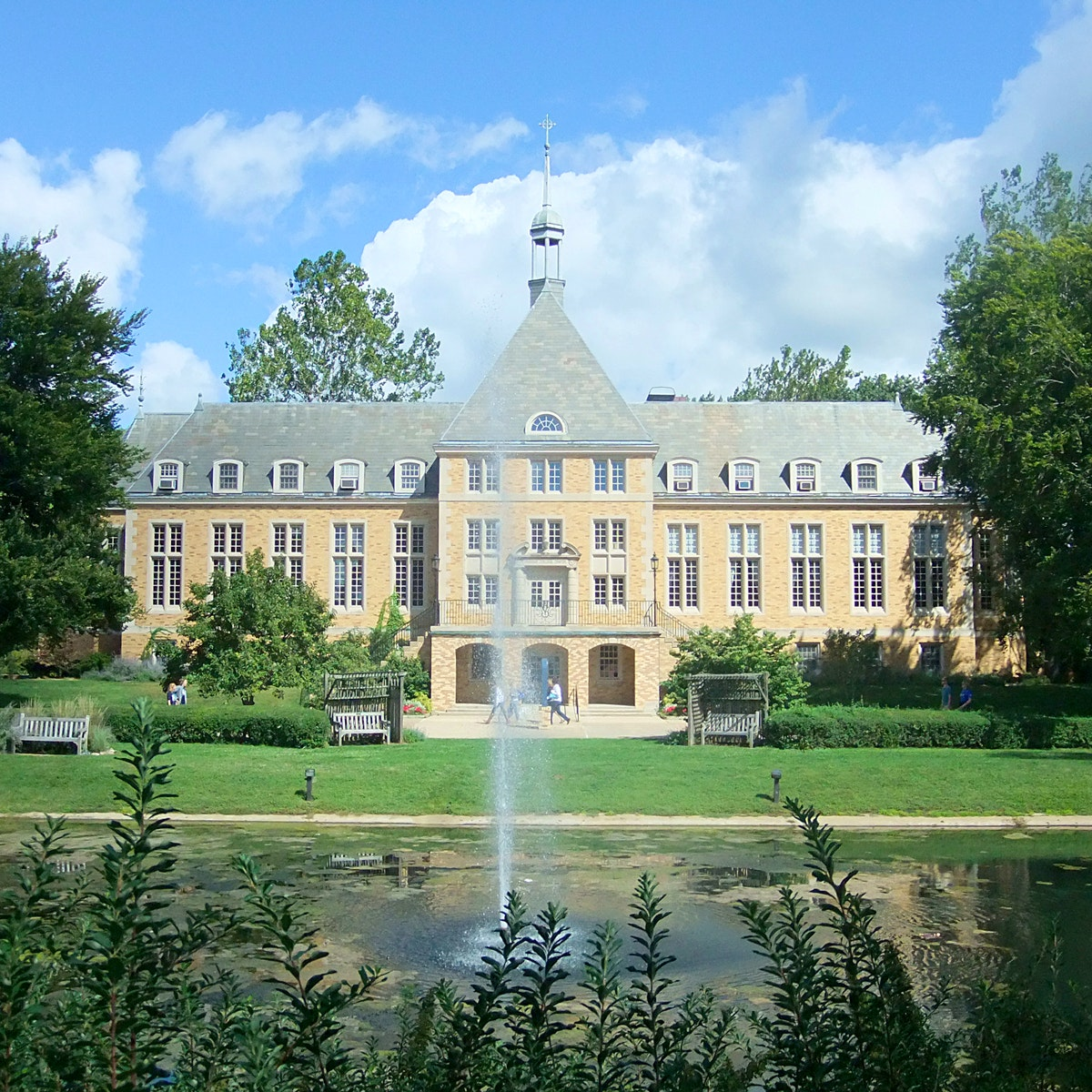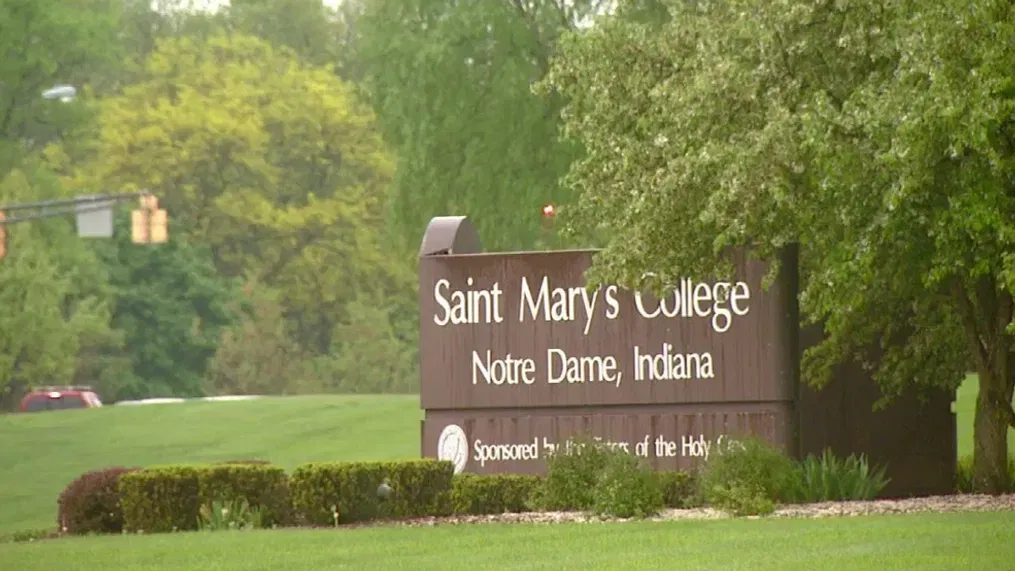Workshop Basic Info
Workshop Title:
Introducing Religious Studies and Theology
Date:
January 16th, 2025 (GMT-5)
Organizer:
Saint Mary's College
Workshop Chair:
Personal Bio:
Kurt Buhring is Associate Professor of Religious Studies & Theology at Saint Mary’s College (IN). Born near Philadelphia, Pennsylvania, USA, he earned his BA in Religious Studies from Grinnell College and his PhD in Theology from the University of Chicago Divinity School. Buhring is the author of Spirit(s) in Black Religion: Fire on the Inside (Palgrave Macmillan, 2022) and Conceptions of God, Freedom, and Ethics in African American and Jewish Theology (Palgrave Macmillan, 2008). Both of these texts are a part of Palgrave Macmillan’s “Black Religion/Womanist Thought/Social Justice” series.
Buhring's research is focused in Black Theology of Liberation. In particular, he is interested in concepts of understanding the divine-human interaction in ways that foster human agency and positively transform the self and society. His research has also explored issues in modern Jewish theology, religion during the Great Depression, and religious expressions in film.
At Saint Mary's College, Buhring teaches courses in social justice, Black theology, interfaith relations, religion and science, and Islam. He has also taught at Westville Correctional Facility as part of the Moreau College Initiative.
Venue:
Le Mans Hall, St Mary S College, Notre Dame, IN 46556, USA

Background:
“Introducing Religious Studies and Theology” examines the nature of religion and the academic study of religion and theology. At the beginning of the semester, we consider ways of defining, studying, and understanding religion, with special attention to sacred action, sacred space, and sacred time. Then, we will explore religion as a human enterprise that is fundamentally embodied, physical, and material. In the next section of the course, we will consider ways in which people have experienced and conceived of God throughout various cultures and religious traditions. Next, we will learn important aspects of a few major world religions.
This course will ask students to understand and evaluate critically a variety of interpretations of the nature of religion(s), ways of studying religion(s), and a range of theological models. Through attentive reading, critical reflection, thoughtful discussion, and creative writing, our notions of religion and theology will be both challenged and enriched.
Goal / Rationale:
On the day of the sample class meeting, students will have read and will be discussing “Thinking About Being a Student of Religion” from Gary E. Kessler’s Studying Religion (3rd ed., 2008). During the class session we will examine some of Kessler’s guidelines for why and how one might approach the academic study of religion. Most of the students take this course as a general education requirement, so it is important to address the value of knowing about and understanding religion and its role in society. Many students are themselves religious, but have never critically examined their own religious traditions and beliefs, let alone those of others. Kessler advocates for guidelines such as self-awareness, openness, honesty, critical tolerance, and sympathetic imagination that are invaluable to the study of religion.
Scope and Information for Participants:
This workshop is aimed at any student, researchers, and individuals interested in the study of religion, theology, and literature, although we will focus on students in their early academic years and will discuss foundational concepts and their impact. The aim is to examine the nature of religion and the academic study of religion, theology, and their intersection with literature. We will focus on defining, studying, and understanding religion, including sacred action, sacred space, and sacred time, and how these themes are depicted in literary works. Participants will explore religion as a fundamentally embodied, physical, and material human enterprise. We will also consider how different cultures and religious traditions conceive and experience God, and how these experiences are reflected and interpreted in literary texts. Through attentive reading, critical reflection, thoughtful discussion, and creative writing, our notions of religion, theology, and literature will be both challenged and enriched. Several keywords are listed to share the potential themes with interested participants, while the topics are not limited to the provided keywords.
Keywords:
- religious studies
- academic study of religion
- literature
- history & philosophy
Topics
- Axiology, Metaphysics & Epistemology
- Ethics & Logic
- Political Philosophy
- Nature of Philosophy
- Military History & Diplomatic History
- History of religion, Social History & Cultural History
- Comparative Literature
- Ancient Chinese Literature, Modern and Contemporary Chinese Literature
- English Literature and Other Foreign Literature
- Fine Arts, Music, and Film
- Art History
- Design, Fashion Design
Submission
All submitted papers should report original and unpublished work, experimental or theoretical, and are not under consideration for publications elsewhere. All papers should be no less than 4 pages in length and must strictly follow the format of the workshop template. All papers are subject to reviews and edits. Prospective authors are kindly invited to submit full text papers that includes title, abstract, introduction, tables/figures and references. Other styles of papers are not accepted. Please submit your papers in both .doc/.docx AND .pdf formats as attachments via email to ws_notredame@icsphs.org by the given deadline. It is unnecessary to submit an abstract in advance.
Dates & Fees
| Submission Deadline | January 9, 2025 (GMT-5) |
| Workshop Date | January 16, 2025 (GMT-5) |
| Notification of Acceptance | 7-20 workdays |
| Registration Fee | USD 450 (cover 6 pages) |
| Additional Page | USD 40/extra page |
Publication
Accepted papers of the workshop will be published in Lecture Notes in Education Psychology and Public Media (Print ISSN 2753-7048), and will be submitted to Conference Proceedings Citation Index (CPCI), Crossref, CNKI, Portico, Google Scholar and other databases for indexing. The situation may be affected by factors among databases like processing time, workflow, policy, etc.
Publication info
Press: EWA Publishing, United Kingdom
ISSN: 2753-7048/2753-7056 (electronic)
Ways to Participate
To break the barriers of time and space and to provide seamless communication opportunities for worldwide scholars, both online and offline participation methods are supported for the workshop. Participants are encouraged to bring their own insights, experiences, and examples to share with the group through either presenting a poster online or attending in person.
Poster Session
The poster session will provide an opportunity for researchers to present their work in a visual and interactive way, allowing for more engagement and discussion with other attendees. Authors of qualified papers will be invited to present their works with digital posters. We believe that this online poster session will still be a great platform for participants to share, discuss, and cooperate.
All accepted authors will receive an invitation email to present at the official workshop website. Please note that all poster presenters must submit the poster before January 9, 2025. Detailed information on your presentation date and time will be confirmed closer to the meeting. If you have any questions, please email ws_notredame@icsphs.org.
Attendance Onsite
The workshop welcomes participants to attend on-site and share the innovative experiences and researches with the group. Therefore, we provide some general information about the visa application. If you want to attend the workshop on-site, please email the workshop committee: ws_notredame@icsphs.org.
Poster Presentation Guidelines
-
Poster presentations must be prepared using the template provided:
*Poster layout template for poster presentation (download)*Poster layout background (download)
- Posters should generally be in A1 size (width: 594mm x height: 841mm) and include the followings:
Title, author and co-author names, and the affiliation(s) information.
Body parts, including "Abstract", "Introduction", "Methods", "Results", "Discussion" and "Conclusions".
- Presenters are suggested to set the font size properly and avoid placing anything at the margin part of the poster as it will be difficult to view.
- Posters should be well illustrated. All the pictures used should be high quality and with high resolution.
- All the posters will be displayed online on the official website. Each poster will have both a small thumbnail and a full-size version.
- Posters will be displayed during the online session. After the presentation is over, the full-size version of all posters will become invisible. But thumbnails still can be seen on the website.
(You can refer to the instructions for more detailed information. Additional presentation guidelines may be announced by workshop committees.)
Visa:
U.S. Visas (state.gov)
In order to ensure the information is correct and up to date, there may be changes which we are not aware of. And different countries have different rules for the visa application. It is always a good idea to check the latest regulations in your country. This page just gives some general information of the visa application.
UK Visa Information
The B-1/B-2 visitor visa is for people traveling to the United States temporarily for business (B-1) or for pleasure or medical treatment (B-2). Generally, the B-1 visa is for travelers consulting with business associates; attending scientific, educational, professional, or business
conventions/conferences; settling an estate; or negotiating contracts. The B-2 visa is for travel that is recreational in nature, including tourism; visits with friends or relatives; medical treatment; and activities of a fraternal, social, or service nature. Often, the B-1 and B-2 visas are combined and issued as one visa: the B-1/B-2.
-
Application Items
If you apply for a business/tourist visa, you must pay your $160 application fee and submit the following:
- A Nonimmigrant Visa Electronic Application (DS-160) Form. Visit the DS-160 web page for more information about the DS-160.
- A passport valid for travel to the United States with a validity date at least six months beyond your intended period of stay in the United States (unless country-specific agreements provide exemptions). If more than one person is included in your passport, each person desiring a visa must submit an application.
- One (1) 2 x 2 inches (51 x 51 mm) photograph taken within the last six months.
- If a visa is issued, there may be an additional visa issuance reciprocity fee, depending on your nationality.
In addition to these items, you must present an interview appointment letter confirming that you booked an appointment through this service. You may also bring whatever supporting documents you believe support the information provided to the consular officer.
-
Supporting Documents
- Invitation letter from business or school.
- Detailed CV or resume including a list of publications.
- Complete itinerary, including all meetings, conferences, and visits; include names, addresses, and telephone numbers of your hosts.
- For other materials, please refer to the U.S. Embassy or Consulate website.
-
NOTICE:
Should your application be denied, the organizing committee cannot change the decision of visa officer, nor will ICSPHS engage in discussion or correspondence with the visa application center on behalf of the applicant. The registration fee CANNOT be refunded when the VISA application of individual being denied.





